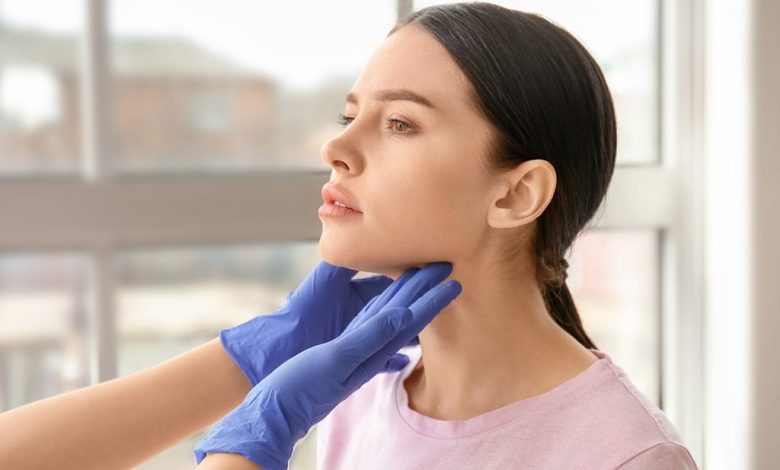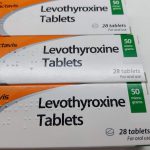What Happens If I Accidentally Took 2 Thyroid Pills?

Hypothyroidism is a condition where there isn’t enough thyroid hormone in your bloodstream and your metabolism slows down. Hypothyroidism happens when your thyroid doesn’t create and release enough thyroid hormone into your body. This makes your metabolism slow down, affecting your entire body. Also known as underactive thyroid disease, hypothyroidism is fairly common.
Hypothyroidism affects up to 5% of the general population, with a further estimated 5% being undiagnosed. Over 99% of affected patients suffer from primary hypothyroidism. When your thyroid levels are extremely low, this is called myxedema. A very serious condition, myxedema can cause serious symptoms, including:
- A low body temperature.
- Anemia.
- Heart failure.
- Confusion.
- Coma.
This severe type of hypothyroidism is life-threatening.
How is hypothyroidism treated?
In general, hypothyroidism is a very treatable condition. It can be managed with regular medications and follow-up appointments with your healthcare provider. An underactive thyroid (hypothyroidism) is usually treated by taking daily hormone replacement tablets called levothyroxine. Levothyroxine replaces the thyroxine hormone, which your thyroid does not make enough of. You’ll initially have regular blood tests until the correct dose of levothyroxine is reached.
How levothyroxine works
Levothyroxine is a synthetic version of the T4 thyroid hormone made by your thyroid gland. Thyroid hormones have important functions like controlling metabolism, body temperature, heart rate, and more. When the amount of hormone is too low, taking thyroid replacement hormones can bring your levels back to normal.
How should Levothyroxine be used?
Levothyroxine comes as a tablet and a capsule to take by mouth. It usually is taken once a day on an empty stomach, 30 minutes to 1 hour before breakfast. Follow the directions on your prescription label carefully, and ask your doctor or pharmacist to explain any part you do not understand. Take levothyroxine exactly as directed. Do not take more or less of it or take it more often than prescribed by your doctor.
Swallow capsules whole; do not chew or crush them. Do not remove the capsule from the package until you are ready to take it.
Take the tablets with a full glass of water as they may get stuck in your throat or cause choking or gagging. Synthroid a brand of levothyroxine is available in a wide range of doses from 25 mcg to 300 mcg. The starting dose of Synthroid is usually based on your weight and is taken by mouth once daily on an empty stomach. After that, the dose will be adjusted based on your lab values and your body’s response
If you are giving levothyroxine to an infant, child, or adult who cannot swallow the tablet, crush and mix it in 1 to 2 teaspoons (5 to 10 mL) of water. Only mix the crushed tablets with water; do not mix it with food or soybean infant formula. Give this mixture by spoon or dropper right away. Do not store it for later use.
Your doctor will probably start you on a low dose of levothyroxine and gradually increase your dose.
Levothyroxine controls hypothyroidism but does not cure it. It may take several weeks before you notice a change in your symptoms. Continue to take levothyroxine even if you feel well. Do not stop taking levothyroxine without talking to your doctor.
What Happens If I Accidentally Took 2 Thyroid Pills?
If you accidentally take a double dose of thyroid pills (Levothyroxine ) you will experience overdose symptoms which include headache, leg cramps, tremors, feeling nervous or irritable, chest pain, shortness of breath, and fast or pounding heartbeats. Most times these symptoms do not develop at once but may take several days before they fully manifest.
What to do if you accidentally took a double dose of thyroid pills
Call your doctor immediately, seek emergency medical attention, or call the Poison Help line at 1-800-222-1222. Treatment will be dictated by the specific thyroid pills taken in the overdose. Information provided about the amount of the drug taken, the time of consumption, and any underlying medical problems will be very helpful.
What side effects can thyroid pills cause?
Levothyroxine may cause side effects. Tell your doctor if any of these symptoms are severe or do not go away:
• weight gain or loss
• headache
• vomiting
• diarrhea
• changes in appetite
• fever
• changes in menstrual cycle
• sensitivity to heat
• hair loss
• joint pain
• leg cramps
Some side effects of thyroid pills can be serious. If you experience either of the following symptoms, call your doctor immediately or get emergency medical treatment: shortness of breath, wheezing, hives, itching, rash, flushing, stomach pain, nausea, or swelling of hands, feet, ankles, or lower legs.
Does levothyroxine cause long-term side effects?
Yes, according to Healthline, it’s possible for levothyroxine to cause long-term side effects, though most of its side effects lessen over time. Examples of long-term side effects that levothyroxine may cause include:
• heart-related problems, such as heart palpitations*
• mood changes
• hair loss
• decreased bone mineral density, which can indicate weaker bones
If you have questions or concerns about long-term side effects from levothyroxine, talk with your doctor or pharmacist.
Preventing an overdose
Drug overdoses can be prevented in many ways. The best methods remove opportunities for accidental overdose or triggers for intentional overdose in the first place.
If you have children in the house, make sure that all medications, both prescription and over-the-counter, are kept well out of reach.
If you use prescription drugs, be sure to use them only as directed by your doctor. Do not combine any medications without first asking your doctor if it’s safe. You should also not mix alcohol with prescription drugs without checking with your doctor first.





